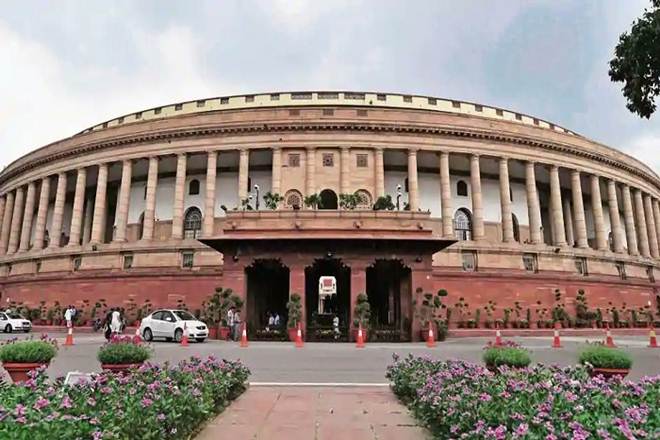Types of Bills in the Parliament like Money Bill, Financial Bill, Constitutional Amendment Bill and how they are passed is very important for the UPSC Prelims as well as Mains. This UPSC note on Passage of Bills in the Parliament covers those topics’

A Bill is a draft legislative proposal which becomes a Law upon enactment. Bills could be broadly classified into two ways:
- On the basis of the source of origin:
Table of Contents
Government Bill
It is also called Public Bill. It is a Bill introduced by a minister in the government. It is the primary method of legislation.
Private Member Bill
- It is the bill introduced by a Member of Parliament who is not a minister.
- It is important to remember that a Bill introduced by a non-minister MP of even the ruling party is called Private Member Bill.
- Such bills can only be introduced and discussed on Fridays.
2. On the basis of the procedure of passage of the Bill:
Ordinary Bill
- An ordinary bill does not require the recommendation of the President and can be introduced in either of the Houses. It needs only a simple majority and the second House may choose any of the following courses of action:
- Pass the Bill
- Reject the Bill
- Propose Amendment to the Bill
- No action
In case the Bill is rejected or amendments which are not agreeable to the originating House are proposed or inaction for a period of 180 Parliamentary days, a deadlock is deemed to have emerged. Such a deadlock could be resolved by a joint sitting notified and summoned by President under article 108.
Once notified, neither House shall proceed forth with the pending bill. When submitted to the assent of President. Such a deadlock could be resolved by a joint sitting notified and summoned by the President under article 108. Once notified, neither House shall proceed forth with the pending bill.
When submitted for the assent of President, after due passage in the Parliament, he has the following options:- Give assent to the Bill and then it becomes a Law
- Withold assent
- Exercise Suspensive Veto or
- Exercise Pocket Veto
Money Bill
It is the bill which exclusively deals with one or more money matters under article 110 which are as follows:
- Imposition, alteration or abolition of a tax
- Borrowing of money by the government
- Custody of Consolidated Fund of India or Contingency Fund of India
- Deposit or withdrawal from the above mentioned funds
- Appropriation of money out of consolidated fund of India
- Receipt of money upon Consolidated Fund of India or Public Accounts of India
- Declaring any expenditure as expenditure charged on the Consolidated Fund of India.
- Points to Remember about Money Bill
- A Money Bill can be introduced only in Lok Sabha and that too only after the recommendation of the President.
- It needs only a simple majority and the speaker is required to certify it as a Money Bill prior to its transmission to Rajya Sabha.
- Rajya Sabha does not have the power to amend or reject the bill but it may suggest amendments.
- If Rajya Sabha does not pass the bill within 14 days the bill would be deemed as passed by the Rajya Sabha.
- Deadlock is not possible.
- The President may either give or withhold assent to Money Bill. But ordinarily he is expected to give his assent.
- The President cannot send a Money Bill back in the House is for reconsideration as per Article 111.
Financial Bill
- It deals with non-money matters along with the money matters mentioned under article 110.
- The differences with Money Bill are:
- Money Bill exclusively deals with money matters under article 110 only.
- While the money is the sole purpose of a Money Bill, the primary objective of a Financial Bill in general is something else and money is only incidental to that objective.
- Financial bill requires prior recommendation of the President.
- It can be introduced only in Lok Sabha and not in Rajya Sabha.
- However, the Rajya Sabha enjoys the same powers as are available in the case of an Ordinary Bill.
- Even a deadlock can be a possibility which could be resolved by a joint sitting.
Constitutional Amendment Bill
- It is a bill to amend one or more provisions of the Constitution.
- Unlike money bill and financial bill it does not require prior recommendation of the President.
- It can be introduced in either of the Houses and would require special majority for passage in each House.
- There can be a deadlock but for resolution there cannot be a joint sitting.
- If a constitutional amendment bill deals with the distribution of powers between Centre and States, it would require ratification by not less than half of the States.
- through the 24th Constitutional Amendment act 1971, it was ensured that the president shall give his assent to our Constitutional Amendment Bill duly passed by the Houses.
Click to Read all Indian Polity notes for UPSC Civil Services Exam.
Click to Read Strategy for UPSC General Studies Paper II Mains Exam